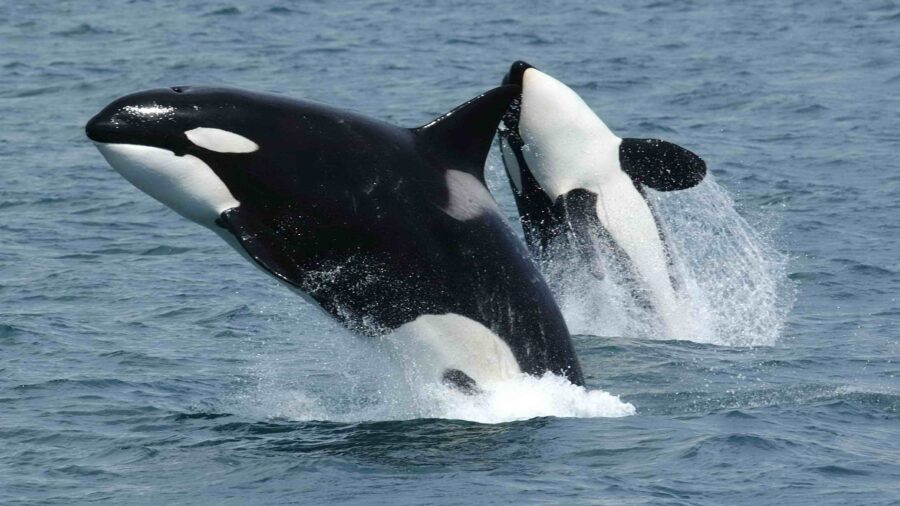Whales Continue To Attack Boats, Is This Behavior Permanent
Orcas, or killer whales, near Europe are stil attacking boats and it's getting worse.

According to Futurism, planning to take your yacht out to the Iberian Peninsula anytime soon could potentially lead to trouble in the form of a whale attack. In the past month, there have been 20 incidents involving orca whales ganging up on their boats and “messing around” by playing with the rudders. What’s more, sources say that there have been over 500 instances of orca whales attacking boats since 2020, and three of these incidents actually led to boats sinking.
One of the prevailing theories behind these whale attacks suggests that the orcas are simply having fun as they fearlessly toy with ships, but they are prone to cause an extensive amount of damage when you consider their domineering strength and imposing size. We’re reminded of Lenny from Of Mice and Men who doesn’t realize how hard he’s petting small animals before it’s too late and he accidentally breaks their necks. In other words, it’s hard to tell if the whales are being outwardly aggressive or just underestimating their own strength as they playfully ram into boats.
The most recent notable instance of a whale attack on a passenger vessel took place on May 24, 2023 when a group of orcas approached a yacht named the Mustique, and attacked it until both steering rudders were successfully removed. Mustique captain Iain Hamilton told BBC Radio that he first noticed a fin, and then a small bump on his yacht before realizing that it was a large orca whale ramming into his boat before being joined by four smaller orcas in her pod who wanted in on the shenanigans. Hamilton went on to say that the whale’s demeanor didn’t come off as aggressive, but rather playful.
It’s worth noting that this behavior seems to be escalating with each passing whale attack. Until recently, the orca pods would simply lose interest with the boat after removing its rudders. The May 24 incident differs from previous attacks in the sense that the whales continued to stalk the Mustique as it was being pulled to shore by the Spanish coastguard, which tells us that maybe they’re not just playing around.

The second theory is a little bit more sinister and may be more fitting when you take into account that orcas are also known as killer whales. Though their behavior seems playful on the surface, orca whales have been known to play cruel games with their prey before going in for the kill. In this case, the “prey” would be ships operated by humans.
Scientists have weighed in on the recent influx of whale attacks on ships, and they speculate that this is just the beginning of this kind of behavior, which may get worse over time. Sources cite an incident in which a female orca nicknamed White Gladis started acting aggressively toward ships after a traumatizing encounter with a sailboat, and other adult orcas have learned to emulate this behavior before then teaching it to their own pods.
If this theory holds water, we could potentially see a more widespread change in the behavior of orca whales as they continue to communicate with one another. Fortunately, these incidents are localized and limited to the area around the Iberian coast. But it’s safe to say that if you plan on having an expedition off the Iberian coast anytime soon, you’re in for a whale of a problem.













